 scene from Sense8
scene from Sense8
 scene from Sense8 scene from Sense8 Ecstasy – what does that word mean to you? Ecstasy certainly has many associations! Some of these are deeply sacred, others far more profane. Each however has something in common: they are about standing out: standing out of the ordinary. For in its Greek origins, ecstasy means exactly that. ‘Ek’ means ‘out of’ and ‘stasis’ means ‘standing: hence ‘ek-statis’ – standing out, or away from, the norm. Ecstasy certainly therefore has important philosophical and theological aspects. Take, for example, the queer Cuban American theorist José Esteban Muñoz. I have been thinking about Muñoz because the theme of this year’s Sydney Mardi Gras is ‘Our Future’ and Muñoz gave a great deal of creative thought to imagining more loving futures. For Muñoz suggested that, in contrast to what he called ‘straight time’, at their/our best, queer people live and invite others into what he called ‘ecstatic time’. In other words, instead of living with the ‘normal’ expectations of time and this world, at their/our best, queer people seek to live and reshape this world differently. Instead of our pasts, our presents, and our futures being shaped by our birth families, and by ‘straight’ drives’ for power, children, inheritance, and wealth, at their/our best, queer people seek different kinds of happiness and societal arrangements. For, like other historically marginalised people, queer people have typically been ‘ecstatic’ people. We/they have stood outside of ordinary life and time: which is very much where our two main figures in our biblical story tonight come in – Naomi and Ruth – as striking models of the ‘ecstatic community’ into which God calls us…
0 Comments
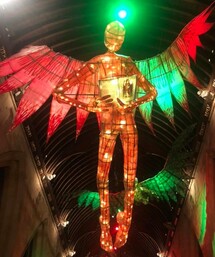 In essence, Christmas is quite a queer thing - don’t you think? I don’t really mean its added oddities, like the 19th century, mainly English, extras, like the carols we sing, and the 20th century, mainly American, extras, like the exaltation of Santa. Those are aspects of Christmas down under which are part of our eclectic multiculturalism, even if they partly reflect our settler colonial culture and tend to work better in the northern hemisphere. For we have more than a little work still to do in listening to the Spirit in these lands now called Australia, including turning many of Christmas traditional symbols upside down and inside out. But that is less of a challenge when we truly celebrate the queerness of Christmas, especially in its original, biblically recorded, forms. For the stories of Christ’s birth - God made flesh - are, like queerness, full of extraordinary features, and very difficult to pin down. Indeed, the very idea that God is made flesh was, and is, a horror to many people. That means that matter matters, and, not least, our bodies matter – and every little bit of them – and caring for one another and our planet matters, because ‘matter matters’ and everything shares in this divine matter. Meanwhile, the idea that God is born in, and with, marginal and outcast bodies still seems so absurd and objectionable to many. For the biblical stories and symbols present God’s queer love: the ultimately irresistible power of Love which overturns all the neat boxes and boundaries of our oppressive world, and its typical ways of thinking. So, rather than trying to straighten out Christmas, as many people try to do every year, I believe that we are far better simply to enjoy its very queer ride: which involves keep adding to the oddities of this time of year, with fresh joy and creativity; and letting its divine queerness shine in us… 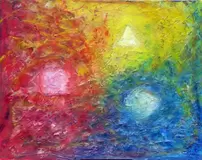 The clergy of the Uniting Church of Australia are obliged to agree that they will baptise new members in ‘the name of the Father and of the Son and of the Holy Spirit’. It is one of really only a handful of non-negotiables. So, why? What does this mean? And what matters about this particular attempt at describing God?... Today’s Gospel reading is a very rich passage, full of extraordinary metaphors, story and meaning. It includes, for example, that powerful central affirmation of Christian Faith that God so loved the world that they sent their Beloved One that all who believe may have eternal life. Note well the heart of this good news: that God loves the world so much that all who believe – not just the doctrinally righteous, or the ethically conservative, but all may have eternal life. For the God we celebrate today is the God of unlimited, inexhaustible, love. As our Gospel text says, Christ comes among us not for condemnation, but for love and salvation. Let us therefore affirm again that you, we, all of us, are loved. The Gospel, our Good News, invites us to claim this, and live it. All of which brings us, in this passage, to the person of Nicodemus, and to light, and darkness…  My wife Penny and I met at theological college. It was certainly not love at first sight. I was quite introverted, not trying to give away much of who I was, and Penny – well, Penny was very nervous and came across as a terrible caricature of an English middle-class blue stocking type of woman: think, those of you who can remember back that far, of Joyce Grenfell in the old St Trinian’s films. Our college was overwhelmingly full of men, with this being only the second year a handful of women had been admitted. So, when I met Penny in the first hour or so after arriving, I thought: ‘well, if this is how the women are here, I am simply not going to survive!’ I guess that was one factor in our initial relationship: sheer survival in an age and culture still trying to come to terms with the equality of women as a whole, never mind wider gender diversity. It was an earlier reminder that, if Penny and I were to minister, it would be as salt. We would be adding fresh flavour to both the Church and the wider world, seeking to provide healing or simply preservation for some of us, and, from time to time, perhaps irritating others into whose wounds we might be placed to aid healing. Maybe some will have views on how well, or otherwise, we have done that so far. Our hope and prayer is, in the words of Jesus in our Gospel reading today, that we, with others, will never lose out saltiness… Courage - Compassion – Joy: these are the name of the angels we have, above us, this evening. Courage – Compassion – Joy: gifts of grace which our church community, with others, seeks to share at World Pride here in Sydney next year, and at all times. For Courage – Compassion – Joy: which of these, I wonder, do each of us need at this time, for ourselves, or for others? May these gifts truly enrich us, for they take us to the heart of our celebrations this evening: the very presence of God in humanity, in human birthing. As such, they are pointers to the deepest reality of our lives. As we see the angels above us, see and share light among us, and, above all, see and share bread and wine – the symbols of divine humanity in us – so may we know God’s extraordinary Love, within and beyond us. For the various elements of our Christmas celebration proclaim that, as above, so below and all around, between, and in all possible dimensions, the God of Love is born among us. Tonight, in the great Christian narrative, is the hinge of history, the heart of meaning, and the hallowing of human being. Let me briefly touch on three elements. For the Christian Christmas is a truly extra-ordinary happening, and a profound embodying, which is also ‘not quite nice’…
Recently I was given a wonderful handmade doorstop. It was a gift from the main organiser of an event I spoke at in the Uniting Church’s Pilgrim College in Melbourne (see my address here and Talitha's own explanation here). We were marking the landmark first Australian university unit in Queer Theology, before the intensive which Penny and I were about to teach. As such, the doorstop was one fitting symbol of such developments, keeping open the possibilities of hearing the voice of God in contemporary culture, particularly in queer lives and spiritual experience, and enabling some of our collective old pain and exhaustions to leave and new joys and challenges to enter. It is however but one doorstop among many created by my colleague during the world’s longest COVID-19 lockdowns in Melbourne. For too many doors were closed at that time. Then and still now, she feels it is important to have practical symbols which keep alive horizons of hope and renew possibilities of life and relationship. In that sense, it is also perhaps one fitting pointer both to our Gospel story (Luke 10.25-38) and to the divine possibilities of Christian mission today. For, in a number of other ways, the parable of the so-called ‘Good’ Samaritan is actually quite impossible…
 photo: Mohamed Nohassi on Unsplash photo: Mohamed Nohassi on Unsplash How do we want our stories to end? Whether it is our own story, or that of our community, our nation, our world, much is up to us. Now, we may not have much room for manoeuvre. All kinds of forces help shape our lives, internal and unconscious, as well as external and recognised. Yet we still have power to shape our stories, even if only by our attitudes, and by how we receive and respond to what happens to us. This truth is at the very heart of the Gospel and the power of love, forgiveness, and justice seeking. For, however you view the Resurrection stories, a common feature is their open, unfinished nature. The tomb is not sealed. The body is not there or is transformed. The end is a new beginning. So how do we want the story to continue?... 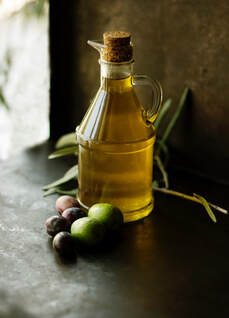 photo from Unsplash photo from Unsplash Today's baptism was delayed from the end of June by the lockdown this year. It is therefore long awaited. In another way however, it is especially appropriate to take place at this particular time: as we celebrate hope and the embodiment of love, especially with Mary and her extraordinary cry of liberation, typically known as the Magnificat. For the person we baptise is, in my view, a truly remarkable person, and a wonderful embodiment of love: both gentle and fearless, just like Mary, the mother of Jesus. Like each of us, she is a truly special creation of God. In her case, I am deeply humbled and enriched by the love and kindness of her presence, by the deep courage of their journey in life to join us; and by the possibilities and dreams she bears. For, like Mary, in her life and baptism today, she helps birth divine love anew among us. Like Mary, but in her own particular way, she thereby encourages us to magnify God’s love and help make it real among us…  Growing up, even as a little child I was fascinated by what was then known as the English Civil War (although, to be accurate historically, this is now rightly recognised as several different wars across the islands of Britain and Ireland). It was a bitter and brutal period, culminating in the judicial trial and execution of the King. For this was a powerful revolution. Indeed it saw the establishment of a republic, the Commonwealth and Protectorate under Oliver Cromwell. Moreover, in that latter period there was also an extraordinary flowering of truly radical religious and political life and thought. That, I think, was what especially drew me into the study of history. For the origin of many liberal democratic things we take for granted lie there – for example, the insistence on no taxation or legislation without representation, on regular elections, fixed parliamentary terms, equal votes, and, vitally, on religious freedom for different types of groups, particularly the marginalised. Indeed, Cromwell even reopened England to the Jews, who had been banned for centuries. For his supporters were also part of the movements which helped create Congregationalism, the original founding tradition of Pitt Street Uniting Church... |
Authors
sermons and reflections from Penny Jones & Josephine Inkpin, a same gender married Anglican clergy couple serving with the Uniting Church in Sydney Archives
June 2024
Categories
All
|
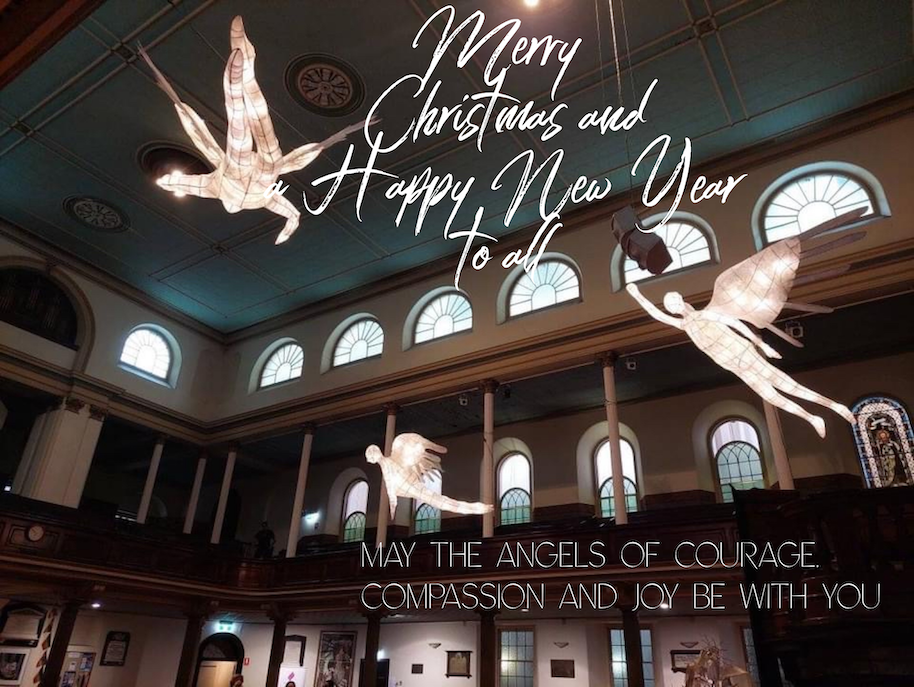
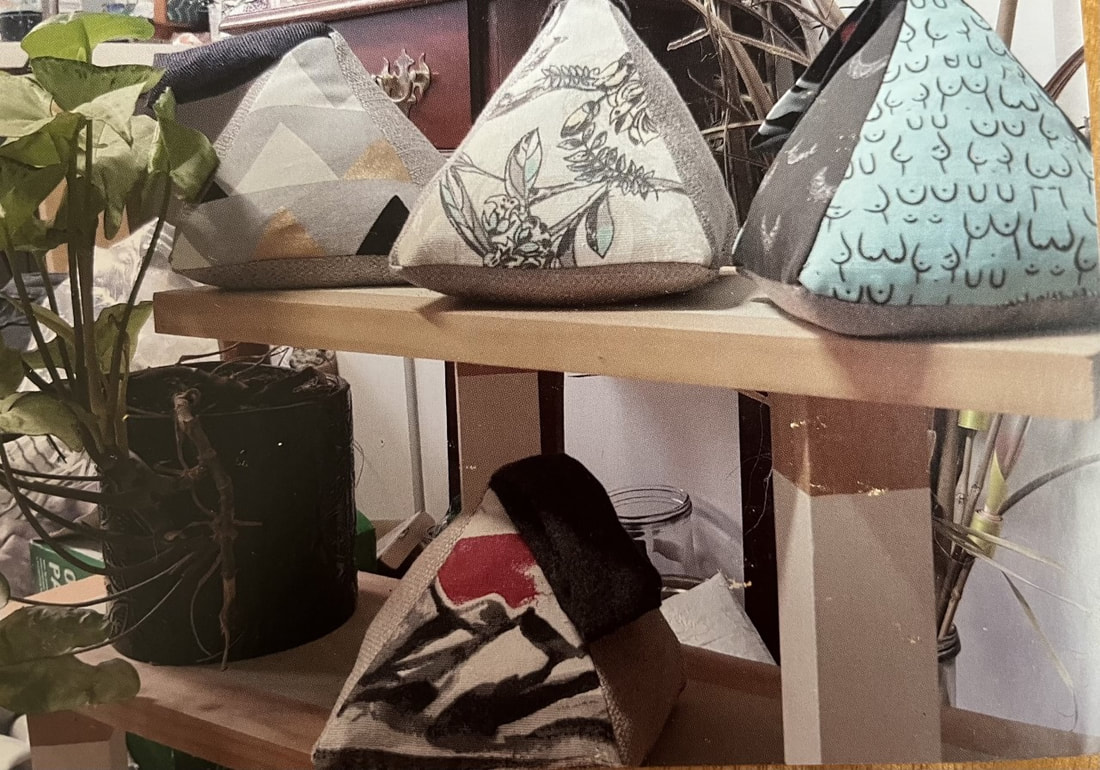
 RSS Feed
RSS Feed